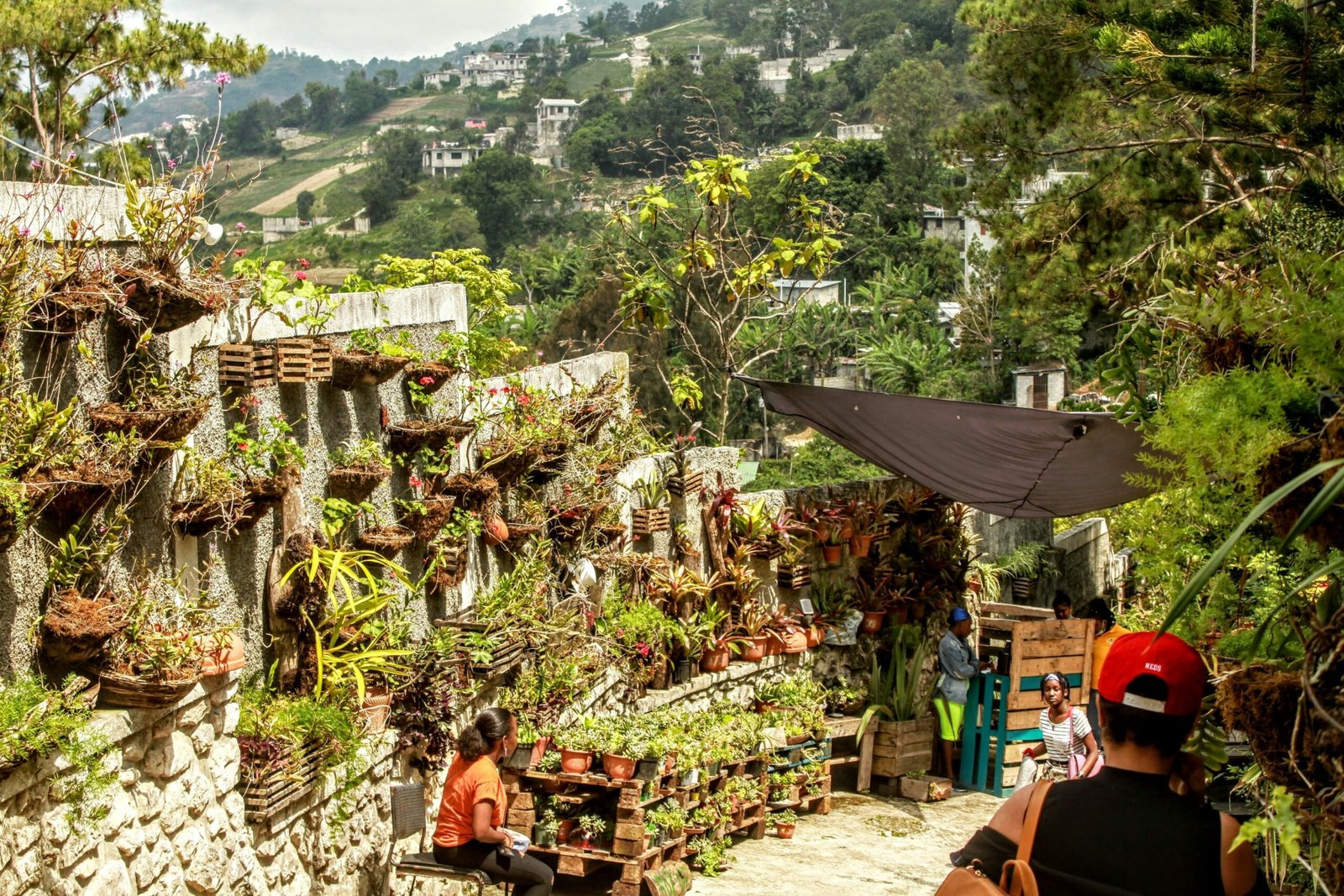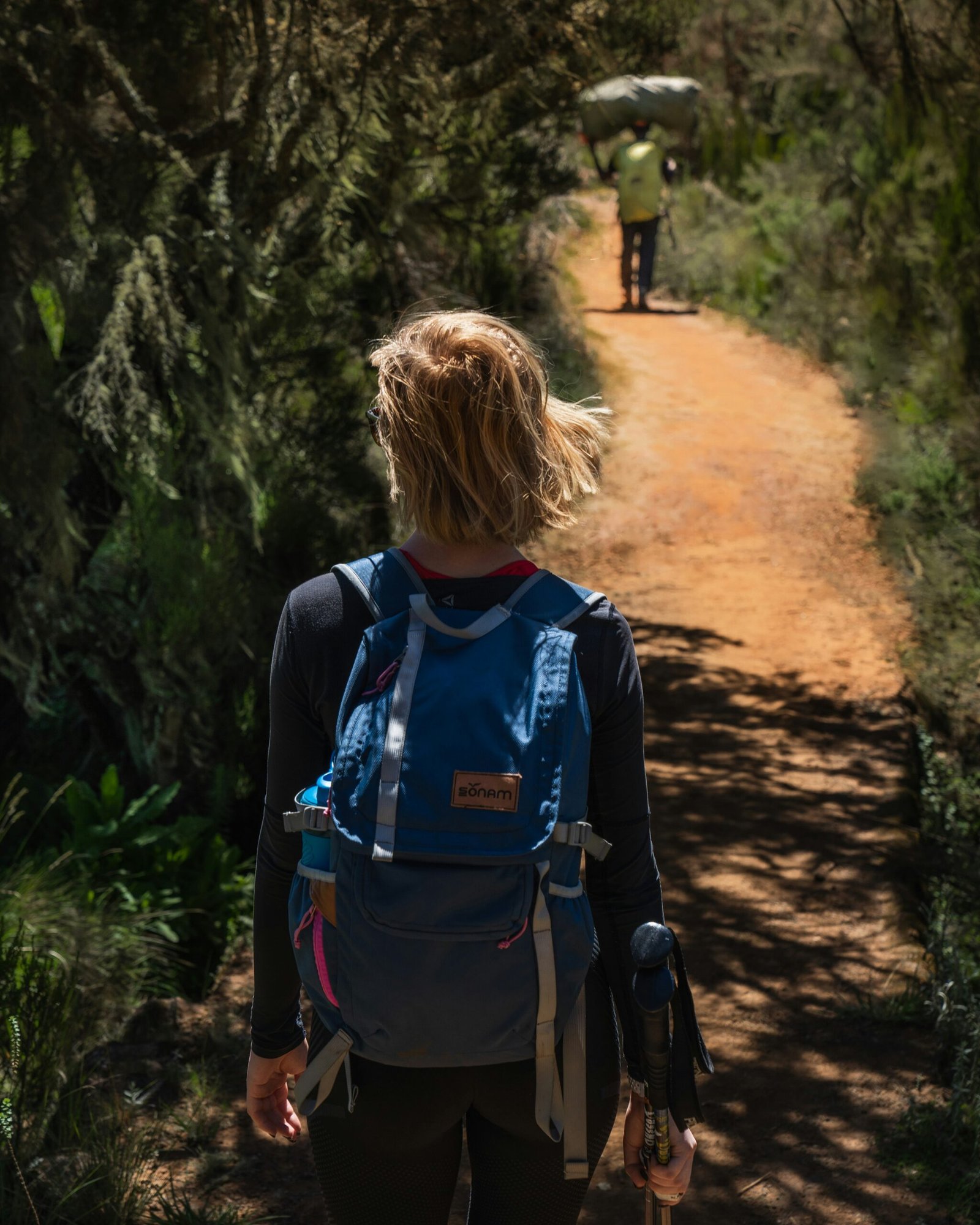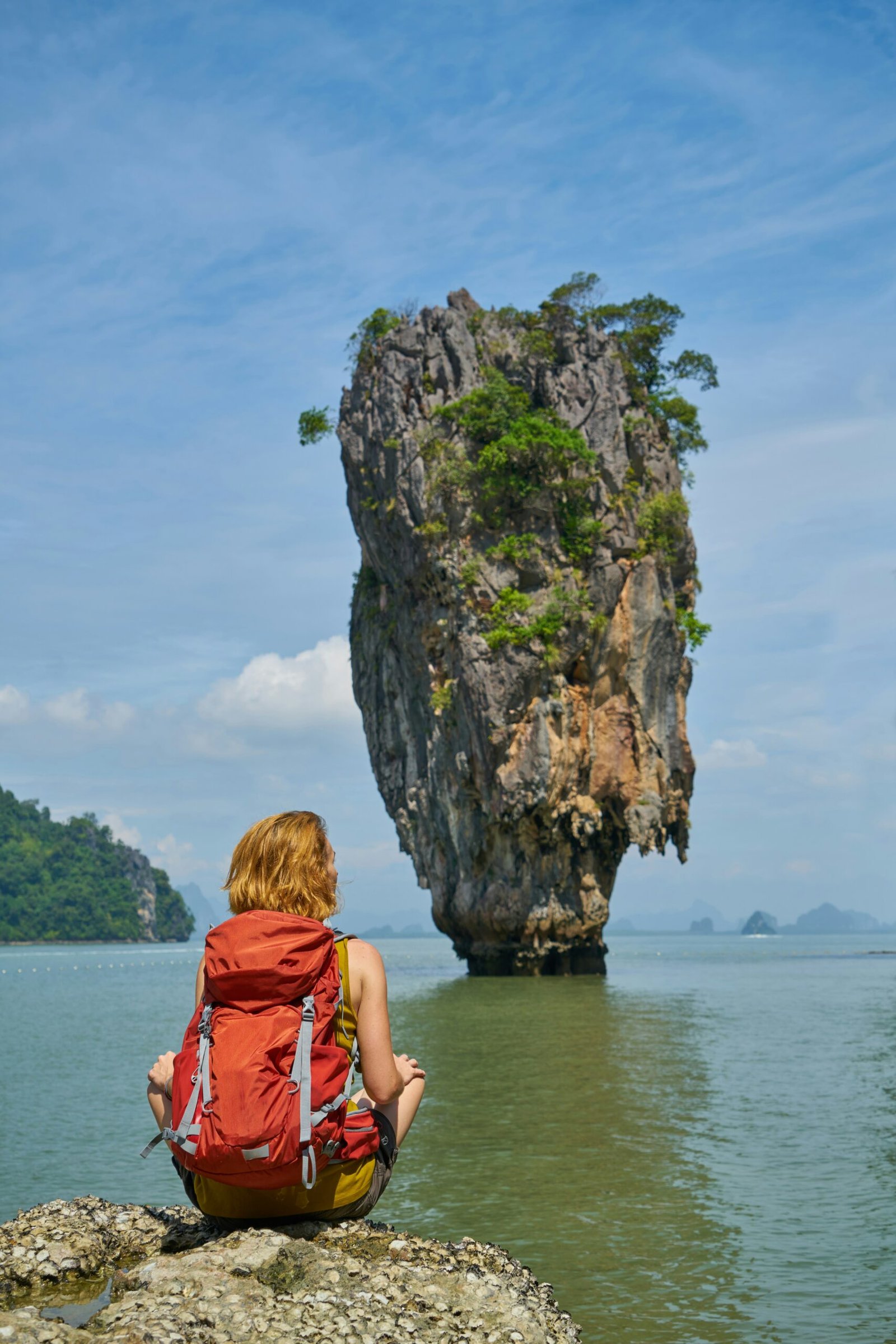Introduction to Solo Travel
Solo travel refers to the practice of exploring destinations independently, without the company of friends, family, or other travelers. This approach to travel has gained significant traction in recent years, appealing to a wide range of individuals who seek the freedom to discover new places on their own terms. The rise of social media and digital nomadism, along with a growing emphasis on personal development, has encouraged more people to embrace the idea of journeying alone.
One of the main attractions of solo travel is the autonomy it offers. Travelers can create their own itineraries, choose when and where to go, and engage in activities that genuinely interest them, without needing to accommodate the preferences of others. This level of independence fosters a sense of empowerment, allowing individuals to enhance their decision-making skills while cultivating a deeper connection with the places they visit.
Moreover, solo travel often offers unique opportunities for adventure and self-discovery. While wandering through unfamiliar streets or immersing oneself in different cultures, travelers have the chance to step outside their comfort zones. Engaging in such experiences can lead to increased self-awareness and personal growth, as individuals learn to navigate challenges and adapt to various situations independently.
However, it is essential to acknowledge that solo travel comes with its own set of challenges. Safety concerns, feelings of loneliness, and potential logistical hurdles can pose difficulties for those embarking on this journey. It is crucial for solo travelers to equip themselves with knowledge, planning, and readiness to tackle these issues, ensuring a rewarding and enriching experience while exploring the world on their own.
Benefits of Traveling Alone
Traveling alone has emerged as a transformative experience, offering unique advantages that can significantly enhance one’s life. One of the primary benefits of solo travel is the unparalleled freedom it provides. When traveling alone, individuals have the autonomy to create their own itineraries, allowing them to explore at their own pace and choose activities that genuinely interest them. This flexibility eliminates the need to compromise with travel companions, paving the way for a customized journey that aligns with personal preferences.
Additionally, solo travel serves as an opportunity for deep personal reflection. Being alone in unfamiliar surroundings encourages travelers to engage with their thoughts and feelings, often leading to profound insights about oneself. This introspection can foster personal growth, allowing individuals to understand their desires, fears, and aspirations in a new light. Such self-discovery is less common in group settings, where distractions from companions can inhibit solitary contemplation.
Moreover, stepping out of one’s comfort zone is an inevitable consequence of traveling solo. Facing challenges without the support of familiar friends can cultivate resilience and confidence. As solo travelers navigate new environments, they often find themselves engaging in conversations with locals and fellow travelers. These interactions not only enrich the travel experience but also create opportunities for lasting connections. The absence of a companion encourages open communication, as solo travelers are often perceived as more approachable, leading to meaningful exchanges that may not occur in a group context.
In essence, the benefits of traveling alone extend beyond mere logistics. The freedom to design one’s adventures, combined with the potential for personal growth and new connections, makes solo travel an enriching, worthwhile experience. For those contemplating embarking on a solo journey, the advantages are numerous and compelling.
Preparing for Your Solo Adventure
Embarking on a solo adventure requires careful preparation to ensure a rewarding and safe experience. The first step is selecting the right destination. Consider factors such as the cultural environment, safety records, and accessibility. Researching travel blogs, forums, and guides can provide insights into locations that are solo traveler-friendly. Additionally, assess your comfort level with different cultures; destinations renowned for their hospitality may enhance your travel experience.
Once a destination is determined, planning your itinerary is crucial. Balance structured activities with flexible time for spontaneous exploration. Create a rough schedule that includes must-see attractions, along with opportunities for relaxation and enjoyment. Utilize travel apps to find local events, dining options, and tips to optimize your adventure. It is also wise to familiarize yourself with public transportation options and routes to navigate efficiently upon arrival.
Packing smartly is another vital aspect of preparing for solo travel. Make a checklist to avoid forgetting necessities while ensuring you pack light. Focus on versatile clothing suitable for the climate and cultural norms of your destination, keeping in mind any specific customs that may dictate acceptable attire. Don’t forget essential items such as travel documents, a first-aid kit, and a power bank. To safeguard personal belongings, consider using anti-theft bags and packing cubes to stay organized.
Moreover, ensuring your safety during your journey is paramount. Educate yourself about local laws and customs, as well as potential risks. Inform family or friends of your travel plans, including your itinerary and contact information. When engaging with locals, maintain a balance between being open and cautious; trust your instincts if a situation feels uncomfortable. By taking these preparatory steps, you can fully embrace the freedom of solo travel while minimizing potential challenges.
Safety Tips for Solo Travelers
Traveling alone offers a unique sense of freedom, but it also requires a heightened awareness of safety. One of the first steps to ensure a secure solo travel experience is to stay vigilant about your surroundings. Always be observant of the people around you and the environment you are in. This awareness can help you recognize potentially dangerous situations before they arise, allowing you to act accordingly.
Securing your valuables is paramount when you are embarking on a journey alone. Use anti-theft bags and keep important items, such as passports and money, close to you. It is advisable to carry a lock for your luggage and to use hotel safes when available. Additionally, consider spreading out your cash and cards in different locations, such as pockets or pouches, to minimize loss in the event of theft.
Choosing accommodations wisely plays an important role in ensuring your safety during solo travel. Opt for reputable hotels or hostels with good reviews that prioritize security. Consider staying in areas with low crime rates and proximity to public transportation, as this will make it easier to navigate and explore the locale. Moreover, familiarize yourself with the emergency procedures of your accommodation, such as exits and contact information for local authorities.
Keeping communication lines open with family and friends back home is essential for solo travelers. Regularly check in with someone you trust to keep them informed of your whereabouts and plans. Utilize technology, like messaging apps and location-sharing features, to stay connected while traveling. Additionally, trusting your instincts is crucial; if something doesn’t feel right, give yourself permission to leave the situation or seek help. By integrating these safety tips into your travel routine, you can embrace the adventure of solo travel with confidence and peace of mind.
Coping with Loneliness on the Road
Embarking on a solo travel journey often embodies the allure of independence and adventure, but it can also present emotional challenges, particularly feelings of loneliness or homesickness. The absence of familiar faces and the comfort of home can sometimes lead to a sense of isolation, especially during quieter moments. Recognizing these feelings as a normal part of the solo travel experience is the first step toward managing them effectively.
One practical strategy for alleviating loneliness is to actively seek social interactions. Solo travelers can join group tours or participate in local activities, such as cooking classes, art workshops, or guided hikes. These settings not only provide the opportunity to engage with fellow travelers but also allow for authentic connections with local communities. Additionally, many cities have hostels or communal guesthouses that foster a friendly atmosphere, where like-minded individuals can share experiences and form friendships.
Another effective method for combating loneliness is leveraging technology to maintain connections with loved ones back home. Regular video calls, social media updates, or even simple text messages can help bridge the emotional gap caused by distance. Sharing your daily experiences or travel highlights with friends and family can transform feelings of isolation into a sense of shared adventure. Furthermore, using travel apps to connect with fellow travelers can facilitate friendships and provide companionship during your journey.
Engaging in self-reflective practices, such as journaling can also be beneficial. Writing about your experiences, thoughts, and feelings can create a sense of connection with oneself and foster a deeper understanding of your emotions. Embedding moments of mindfulness into your travel routine can help ground you, making loneliness feel less overwhelming.
Ultimately, while encountering feelings of loneliness during solo travel is not uncommon, employing various strategies can enhance your overall experience and enrich your journey.
Making Connections While Traveling Solo
One of the most rewarding aspects of solo travel is the opportunity to forge connections with others, both locals and fellow travelers. Engaging in social interactions not only enriches the travel experience but can also provide invaluable support and shared memories. Solo travelers can capitalize on numerous avenues to foster these connections through various mechanisms.
Staying in hostels is a popular choice for many solo travelers seeking to meet new people. Hostels often feature communal living spaces and organized social events, making it easy to strike up conversations and build friendships. Shared dormitories allow travelers to exchange stories and tips about their journeys, while hostel-organized activities, such as group meals or outings, further facilitate socialization. These informal settings create a sense of community, enabling solo travelers to bond over their shared experiences.
Another effective approach to making connections while traveling is joining tours or group activities. Many destinations offer guided tours tailored for small groups, which not only provide valuable insights on local culture but also allow participants to interact with one another. Engaging in communal experiences, such as cooking classes or adventure excursions, promotes camaraderie among travelers who are eager to connect. Such activities often lead to friendships that last well beyond the trip itself.
In addition to traditional methods, technology has revolutionized how solo travelers interact with others. Various apps are specifically designed to connect travelers with similar interests. Platforms such as Meetup, Couchsurfing, and TravelBuddy offer opportunities to organize local meet-ups or find travel companions. By utilizing these apps, solo travelers can expand their social networks and discover shared experiences with like-minded individuals, further enhancing the enjoyment of their journeys.
Through these strategies, solo travelers can create meaningful connections that transform their experiences into rich, memorable adventures.
Embracing Spontaneity and Flexibility
One of the most remarkable aspects of solo travel is the inherent freedom it provides. Unlike traveling with companions, where decisions often require consensus, solo travelers enjoy the luxury of spontaneity. This flexibility allows for real-time adjustments to plans, encouraging adventure and the thrill of the unexpected. Imagine wandering through a new city and suddenly deciding to explore a hidden alleyway that wasn’t part of your itinerary. These unplanned moments often lead to unique discoveries, whether it be a charming café, a local market, or an unexpected cultural celebration.
Moreover, this ability to adapt plans on a whim fosters a deeper engagement with the environment. Solo travelers can follow their instincts and interests without the need to accommodate others’ schedules or preferences. This means if an intriguing festival occurs on the street, or a local recommends a stunning viewpoint, it is entirely possible to join in without hesitation. Embracing spontaneity in this manner invites enriching experiences, transforming a simple trip into a memorable journey.
This flexibility extends beyond daily activities; it also encompasses longer-term decisions. For instance, if one finds a destination particularly captivating, the liberty to extend a stay or adjust travel routes becomes an enticing option. Such choices contribute to a trip that feels authentic and personally curated. Travelling solo fosters creativity in planning; one can mix and match preferred activities with ease, alternating between relaxation and exploration.
Ultimately, embracing spontaneity and being open to change can unveil opportunities that structured itineraries may overlook. When you allow flexibility to guide your travel, each day can unfold its own narrative, creating a tapestry of rich, unforgettable experiences. This empowerment to navigate freedom is truly one of the greatest rewards of solo travel.
Personal Growth Through Solo Travel
Traveling alone offers a plethora of opportunities for personal growth and self-discovery that group travel often does not provide. When one embarks on a solo journey, they step into a realm where they are solely responsible for their decisions, allowing for an environment conducive to developing independence and confidence. The experience of navigating unfamiliar cities, public transportation, and local customs fosters problem-solving abilities and adaptability—qualities that serve individuals well beyond their travels.
As solo travelers confront challenges—be it language barriers, unexpected itinerary changes, or simply finding one’s way in a new place—they cultivate resilience. Each small victory enhances their self-esteem, reinforcing the notion that they are capable of handling difficult situations on their own. This newfound confidence can lead to a broader willingness to face life’s everyday challenges back home with a more adventurous spirit.
Additionally, solo travel provides a unique opportunity for introspection. Away from the familiar distractions of daily life, individuals have the time and space to reflect on their thoughts, feelings, and goals. This process of self-reflection can result in invaluable insights regarding one’s desires and aspirations, often leading to clarity in personal and professional pursuits. The solitude of solo travel also encourages individuals to reconnect with themselves, offering the chance to cultivate a deeper understanding and appreciation of their own identity.
Engaging with diverse cultures, meeting new people, and experiencing the world from a singular perspective further enriches the solo traveler’s life. These encounters not only enhance worldly knowledge but also broaden interpersonal skills, fostering compassion and empathy towards others. In the end, embracing solo travel paves the way for significant personal growth and lasting positive transformations that can influence all aspects of life.
Conclusion: Celebrating Your Solo Journey
Solo travel is not merely a journey through different landscapes; it is an expedition inward, providing unparalleled opportunities for personal growth and self-discovery. Embracing the freedom that comes with traveling alone allows individuals to connect more deeply with themselves, cultivate resilience, and develop independence in a world that often feels overwhelming. Every experience, whether a serendipitous encounter with a local or a moment of solitude in a bustling city, contributes to a greater understanding of one’s identity and aspirations.
As you navigate your solo travel adventures, it is essential to celebrate each milestone, regardless of size. A successful trip is not defined solely by the grand destinations visited; it is equally about the little moments that resonate and shape your journey, fostering a sense of accomplishment and self-sufficiency. These experiences facilitate a deeper appreciation for the places you visit and the cultures you engage with, allowing for moments of reflection where you can genuinely appreciate the beauty of your journey.
Moreover, stepping out of your comfort zone can lead to unexpected opportunities and meaningful connections. When you travel solo, you open yourself up to the world in a way that is often inhibited when traveling with others. This newfound perspective can inspire creativity, ignite passions, and create lasting memories that will enrich your life long after you return home.
In summary, the essence of solo travel lies in the unique narratives you create and the personal triumphs you achieve along the way. By recognizing the value of your solo journey, you can celebrate the independence, strength, and confidence gained through each travel experience, reminding yourself that the world is indeed a vast playground waiting to be explored, one step at a time.










